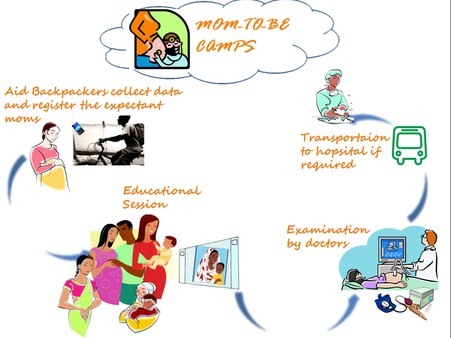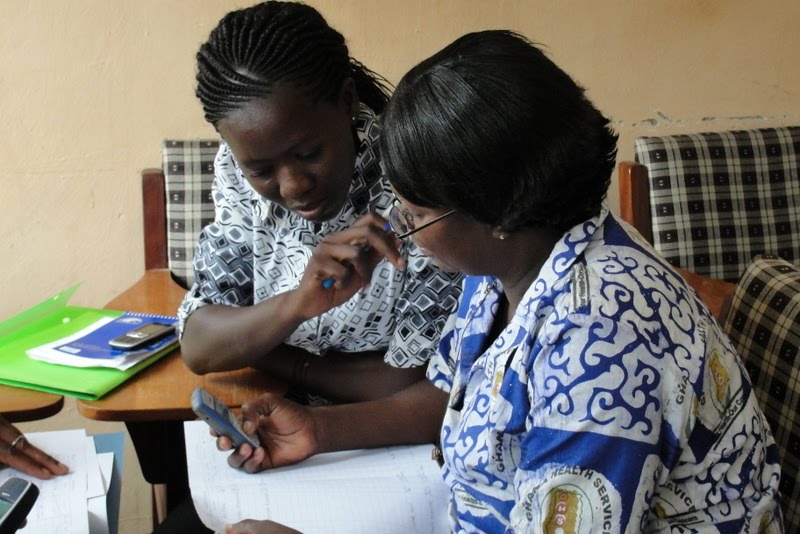OpenIDEO along with Nokia and Oxfam recently ran a challenge on maternal health entitled “How might we improve maternal health with mobile technologies for low income countries?” The challenge brief was:
OpenIDEO has partnered with Oxfam and Nokia to explore how mobile technologies can be used to improve maternal health (particularly in pregnancy and childbirth). We’re asking you, the OpenIDEO community, to come up with inspirations and concepts around improving the knowledge and access to maternal health services, specifically where mobile technologies can be used as a tool to aid this. We’re focusing our solutions in low-income countries, such as Burkina Faso and Bangladesh. In many such countries fees for health care prevent millions of mothers from seeking the professional care they need or where under-investment means health works or medicines are unavailable.

Free Maternity Camps
There were many great responses and we’re glad that two of them, Free Maternity Camps and CareGiver Solution for Midwives, were both based on Grameen Foundation’s Mobile Technology for Community Health (MOTECH) platform. Free Maternity Camps would “send medical teams from a base hospital to remote areas where moms-to-be will be examined by doctors. The concept of the maternity camps is inspired by Aravind’s free eye camps in India.” The CareGiver Solution for Midwives would “help midwives/HCW monitor expecting mothers, identify risk pregnancies and involve a doctor when required.”
Congrats to Krassimira Iordanova who submitted these winning concepts. We’re looking forward to learning how they turn out.


